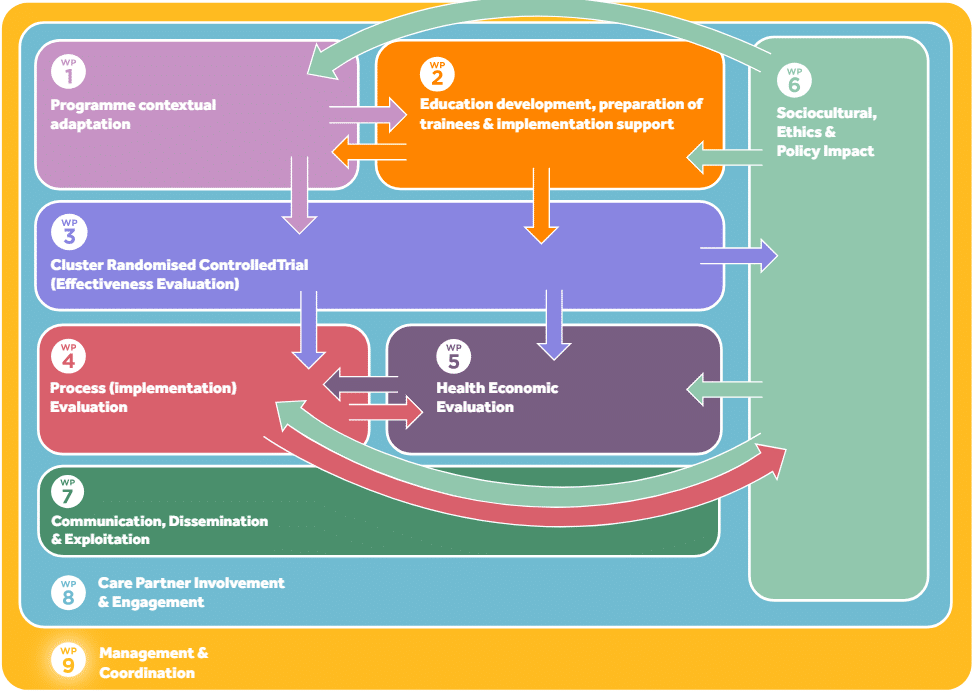The Project

Enhancing Dementia Care through the In-Touch Project
Improving Comfort and Quality of Life
The primary goal of the In-Touch project is to enhance the comfort and quality of life for people with advanced dementia in nursing homes. Many of these individuals face significant challenges, such as limited mobility, difficulty communicating, and ongoing discomfort. The project’s non-pharmacological interventions seek to address these issues through personalised, compassionate care that focuses on the individual’s needs and preferences.
Assessing the Effectiveness and Benefits
Enhancing Staff Skills and Training

Enhancing Social Engagement

Addressing the Critical Need

Our Work Packages
Enhancing Dementia Care for people in nursing homes across different countries. We will be developing manuals and procedures that meet ethical, legal, and cultural requirements while staying true to our core principles.
Education and Training for All. We will create educational resources and training programs that can be accessible to everyone. Our goal is to use innovative strategies to ensure that learning is inclusive and culturally adapted.
Developing a Protocol and Conducting a Trial. We will be working with 7 countries to develop a protocol for the In-Touch intervention and conduct a cluster randomised controlled trial (RCT). Our goal is to follow established procedures and provide statistical analysis for the trial activities.
Evaluating the In-Touch Intervention in European nursing homes, assessing the effectiveness and sustainability of the intervention. We will identify the factors influencing implementation, understand how the intervention brings about change, and develop guidelines for policymakers and practice communities to support its adoption and sustainability.
To assess the costs and benefits of program implementation across sites and countries and estimate the economic implications of programme implementation.
Understanding Dementia Care Policies and Implications across seven countries. Our project focuses on mapping policies, describing socio-cultural and legal contexts, providing guidance and policy briefs, and exploring ethical implications. Through empirical research, we aim to enhance the In-Touch intervention and contribute to the field of bioethics.
Sharing the Impact of the In-Touch Programme. We will spread awareness about the In-Touch Programme and its positive effects. Our goal is to create a detailed plan to increase visibility, communicate research findings to stakeholders and the public, and build a community for collaboration and knowledge sharing.
Making a difference by:
- Creating customised In-Touch Manuals for partner countries, meeting ethical, legal, and cultural requirements while staying true to our research.
- Providing support with translated standard operating procedures (SOPs) approved by ethics committees in each partner country.
- Collaborating with people living with dementia, families, and experts to design innovative solutions.
- Establishing an International Care Partner Advisory Group (CPAG) for care partner involvement and engagement.
- Maximising care partner involvement with guidance and virtual tools for diverse populations.
Project management – which will enable the project to achieve its goals and research objectives. The project management will coordinate and supervise activities, facilitate communication among partners, establish and run governing boards, manage finances, and ensure compliance with ethics and data management regulations.




